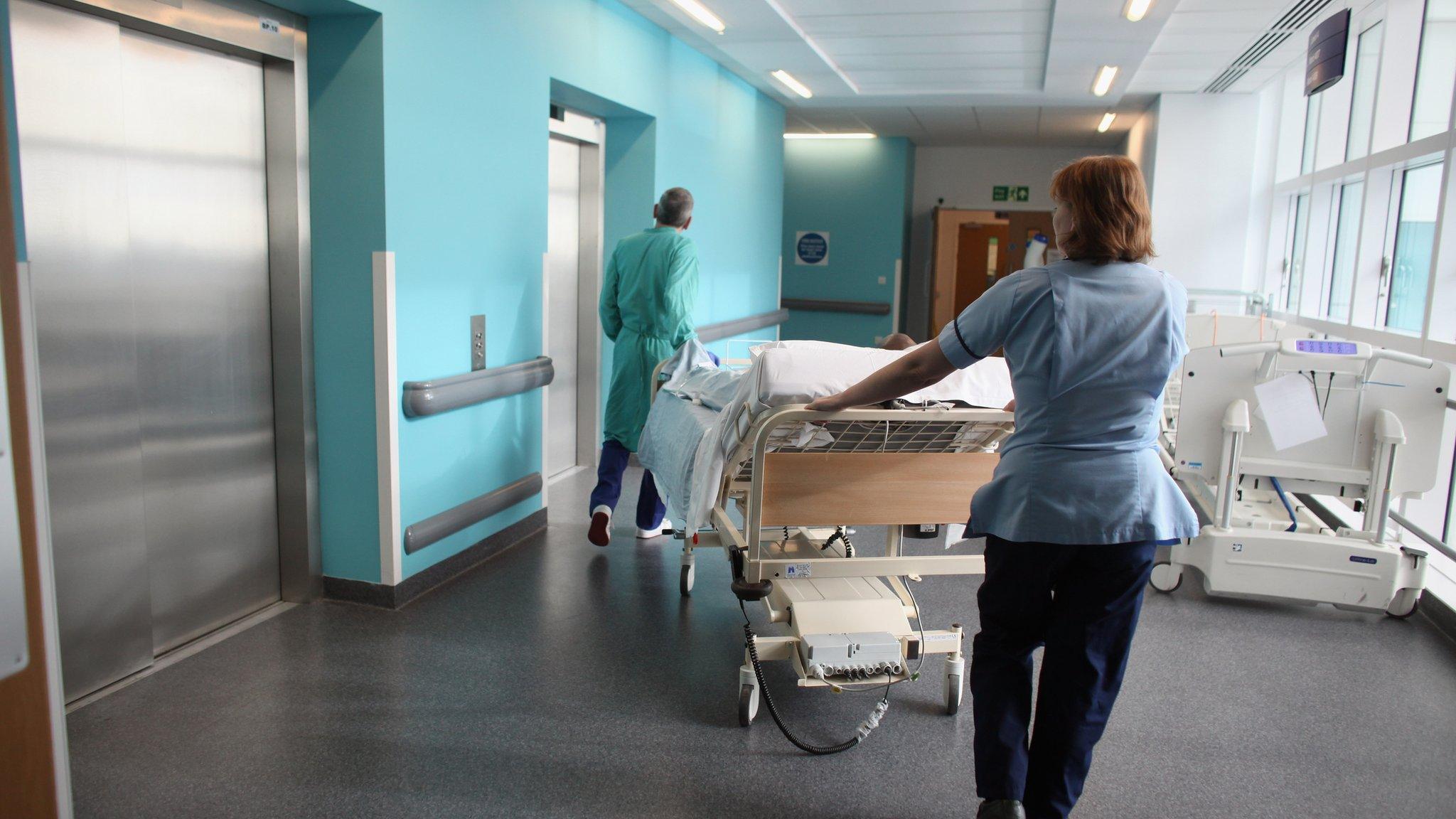Upfront charges for NHS foreign patients in England
- Published
- comments
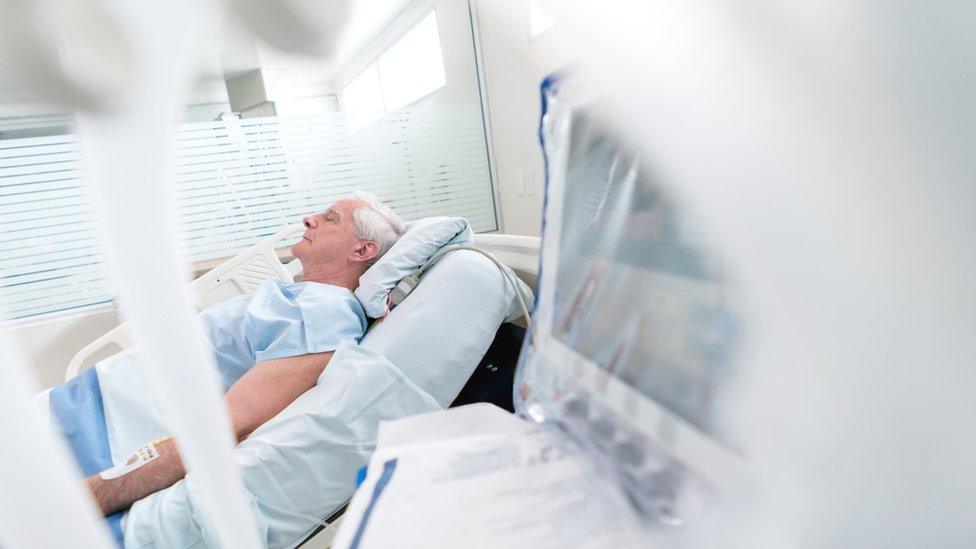
NHS hospitals in England will have a legal duty to charge overseas patients upfront for non-urgent care if they are not eligible for free treatment.
From April this year, foreign patients could be refused operations unless they cover their costs in advance.
NHS Improvement, which oversees the trusts, said hospitals would no longer have to chase money they are owed.
Emergency treatment will continue to be provided and invoiced later.
The announcement from Health Secretary Jeremy Hunt comes amid recent headlines about the cost of tourists using the NHS.
A BBC documentary, Hospital, showed a number of foreign patients unable to pay their bills.
Hospitals are already supposed to charge patients living outside the European Economic Area for care such as hip operations or cataract removal, but this can be done by invoice, rather than upfront.
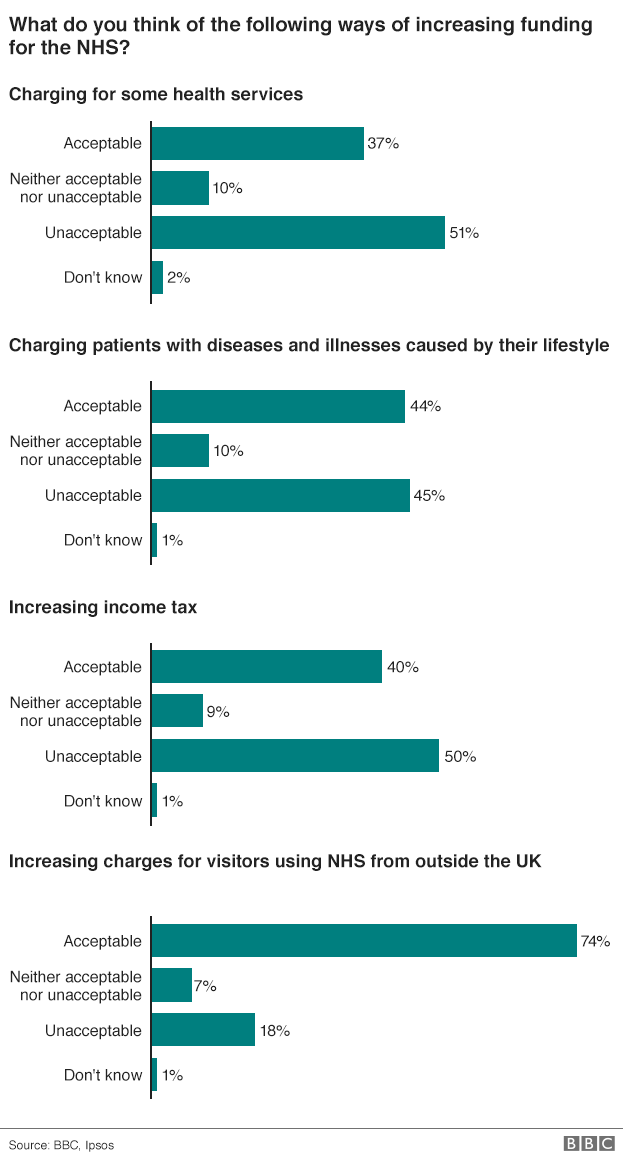
Details of treatment given to visitors from EEA countries should be forwarded to the Department of Health so the costs can be recouped from their governments.
But earlier last week, MPs on the Public Accounts Committee said the system for recovering costs, external from foreign visitors was "chaotic".
Mr Hunt said: "We have no problem with overseas visitors using our NHS - as long as they make a fair contribution, just as the British taxpayer does."
The health secretary said the aim was to recover up to £500m a year by the middle of this Parliament to reinvest in the NHS.
A report by the National Audit Office last October suggested that money raised next year would fall far short of this target.

'Largest' unpaid bill
A Nigerian woman owes £330,000 after giving birth prematurely to quadruplets in a west London hospital.
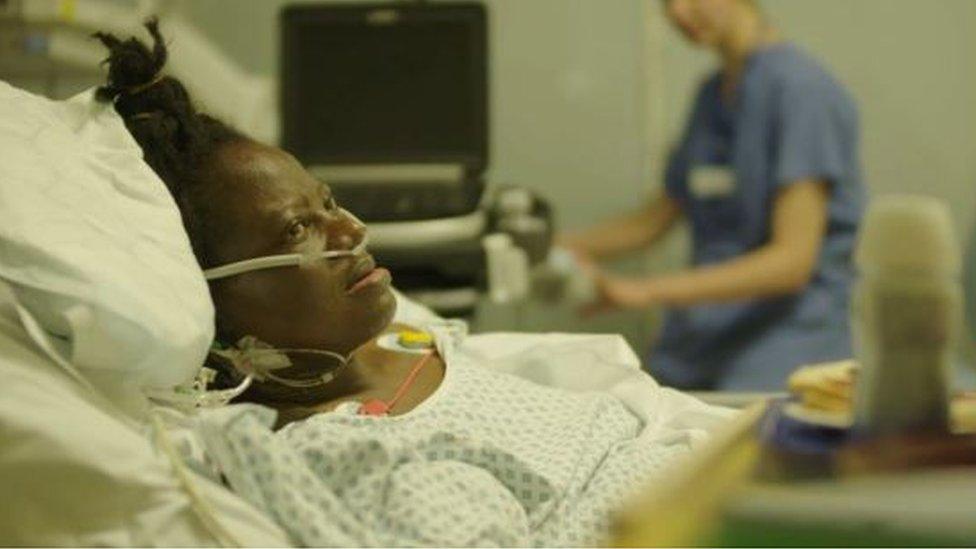
Priscilla, whose case was highlighted in the BBC documentary Hospital, was taken ill on a flight home from the US and ended up in St Mary's A&E, after her plane stopped over at Heathrow Airport.
Her bill is thought to be among the largest unpaid by an overseas patient - but she has no ability to pay it.
Priscilla would still have received urgent treatment under the new arrangements because her life and those of her babies - two of whom died - were at risk.
The NHS Imperial College Trust, which includes St Mary's, spent £4m on overseas patients in 2016 and managed to recoup £1.6m.

The changes mean that from April, foreign visitors needing urgent care will still be treated immediately on the NHS and invoiced if they are not to be eligible for free care.
But they will also be told upfront that their care is chargeable before treatment begins.
It will be up to individual trusts to work out how best to check eligibility. It is thought some trusts will ask overseas patients to produce two forms of identification - including one showing a UK address.
Dr Meirion Thomas, a former cancer surgeon at the Royal Marsden Hospital, told Radio 4's Today programme that the plan was a "smokescreen".
Meirion Thomas tells Radio 4’s Today that charging overseas patients "will not work".
"It is not going to work because there are not trained people to identify and charge overseas visitors upfront," he said, highlighting an example where there was one overseas visitor manager - who identifies those who do not qualify for free NHS healthcare - for three hospitals in London.
"Anyone going into any of the Schengen countries, when they apply for a visitor's visa, they have to prove that they have 30,000 euros worth of health and travel insurance and that is the cure for this problem in this country."

NHS Health Check

A week of coverage by BBC News examining the state of the NHS across the UK as it comes under intense pressure during its busiest time of the year.

The doctors' union, the BMA, warned of potential "chaos and confusion" from the changes.
Dr Mark Porter, BMA council chairman, said: "There is no detail as to how upfront charging will be introduced from scratch in just three months, in an NHS already unable to cope with normal operations."
A UK-wide poll of just over 1,000 adults by Ipsos Mori for the BBC shows that 74% of respondents support increasing charges for visitors from outside the UK to help fund the NHS.
- Published1 February 2017
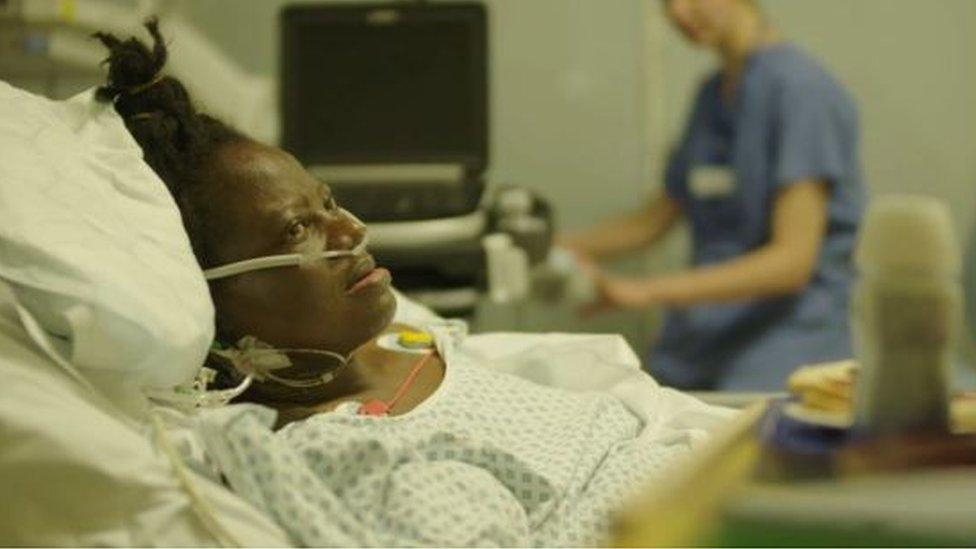
- Published28 October 2016
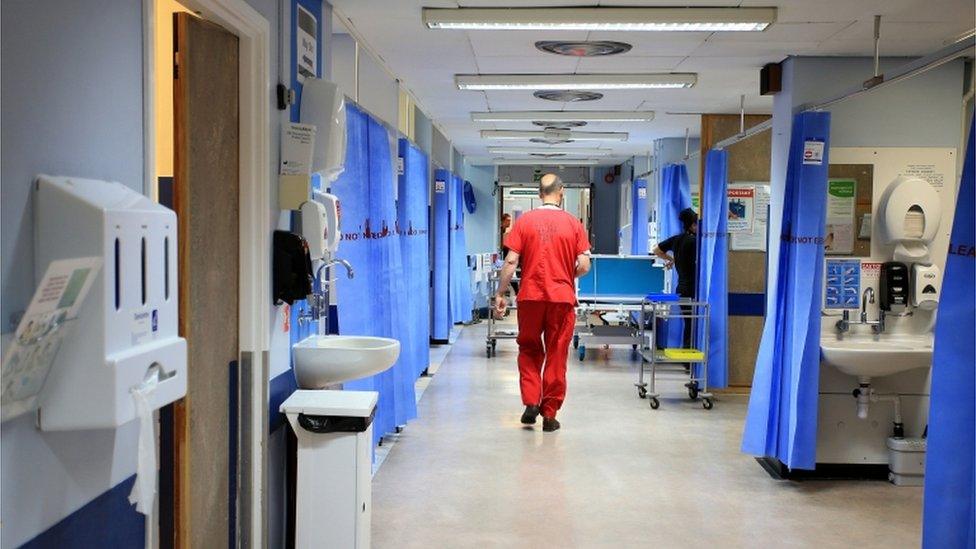
- Published31 October 2015
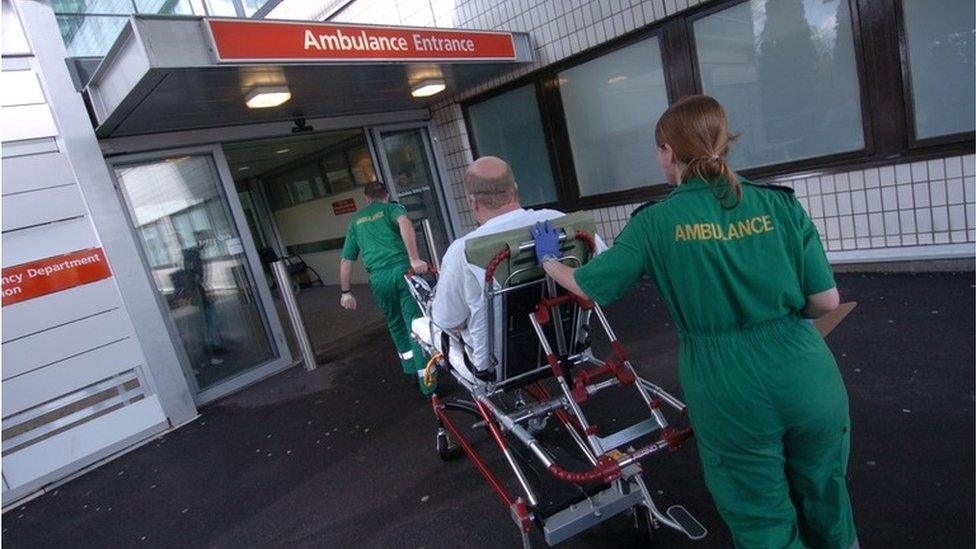
- Published13 April 2015
